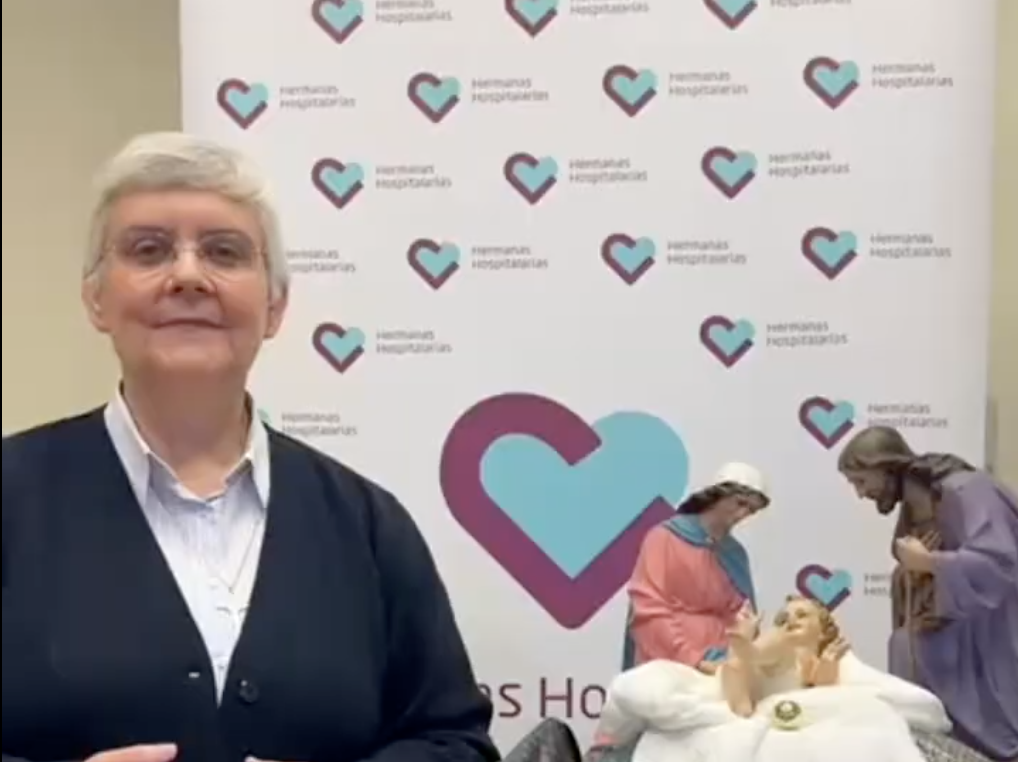Liberia faces serious mental health challenges due to the aftermath of civil war, extreme poverty, and a lack of healthcare infrastructure. These issues are exacerbated by stigma and a shortage of professionals in the field. It is estimated that around 40% of the population suffers from psychological disorders such as post-traumatic stress and depression, but the country has fewer than five psychiatrists for over five million inhabitants. Additionally, 64% of the population lives below the poverty line, which further complicates access to treatment.
In this context, the We Are Like You project, driven by Sisters Hospitallers, plays a key role in offering specialized care for women with mental illnesses, training professionals, raising awareness in society, and promoting social reintegration. To learn more about the impact of this initiative, we spoke with Mikel Tellaeche, project director, who provides a more detailed insight into the work being carried out in Liberia.
What is the We Are Like You project and how did it come about?
We Are Like You is a collaborative initiative between Aita Menni (now Fundación Hospitalarias Euskadi) and Sr. Benedict Menni Health Center (Liberia) focused on providing care for people with mental illness. Beyond medical assistance, the project seeks to create an impact on the community by fighting stigma, training new professionals, and creating educational opportunities for underprivileged youth.
Both centers, belonging to the Congregation of Sisters Hospitallers, are sister institutions working in synergy for knowledge transfer, volunteer programs, healthcare resource management, and the funding of health programs and investments.
What is the main goal of the project and what actions are being carried out?
The primary goal of the program is to rehabilitate women with mental illness through community reintegration, providing them with an opportunity to live a full life. This involves, first, controlling the illness through pharmacotherapy, behavioral reinforcement, occupational therapy, and equipping individuals with tools for reintegration into the community through empowerment programs.
The program has contributed a care facility with a capacity for 24 women, in addition to outpatient care programs, home visits, and an empowerment and monitoring program that provides financial support to patients so they can start economic activities. There is no better treatment than restoring dignity through work that provides autonomy.
Furthermore, the BM HC has become a reference training center that collaborates with the University of Medicine in the resident program, and serves as a training center for nursing, social work, and other social healthcare institutions.
Currently, we are engaged in a fundraising campaign to build a second building that will allow us to care for 10-20 additional patients in detoxification programs related to mental illness.
What impact has the project had on the community, both on patients and local healthcare teams?
Humbly, we can say that we have incorporated a new center into the provision of mental health services with a multidisciplinary approach, applying Sisters Hospitallers procedures and technologies adapted to the local culture, always considering local input.
We have included rehabilitation and community reintegration. If we don’t succeed in helping people recover their new normality in their environment, we have not been successful. This is the most complex and difficult component to implement and ensure it takes root.
Traditionally, healthcare professionals feel comfortable in their daily hospital-based work. The challenge is to convey that this part of treatment is just an initial phase and that the success of treatment depends on community integration, with follow-up consultations and the necessary support while stabilizing the chronic nature of the illness.
How is the Scholarship Program helping children and youth from the underprivileged surroundings of Benedict Menni Center to build a better future?
The program was initially created to address the needs of children near the center, whose families could not afford to send them to school. From there, a network of connections with friends in the Basque Country was formed, allowing funds to be raised and linked to the education of specific children, with monthly contributions of 25 euros.
Over time, we have identified demands for higher education, which we have organized either through direct assignments to collaborators or families, or through participation from multiple donors.
Today, we are proud to mention the case of one of our staff members, a laboratory technician, who came through the schooling program. The goal for some of them, having started their education later, is to learn trades we can employ at our center.
The We Are Like You project not only transforms the lives of women with mental illness but is also building a comprehensive mental health care model in Liberia. With a person- and community-centered approach, Sisters Hospitallers continues advancing its mission to provide quality healthcare and generate opportunities for those who need it most.


